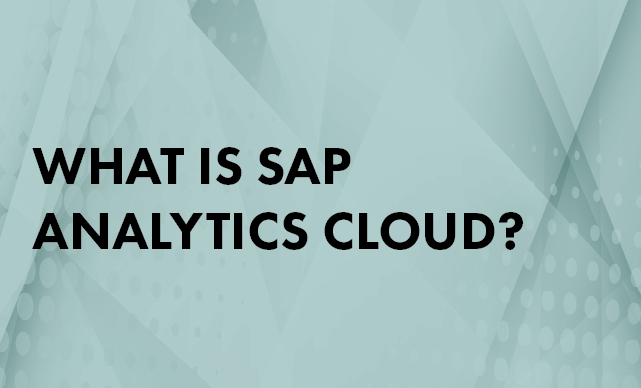The Role of Data and Reporting in Fighting Climate Change
Key Takeaways
Learn the real impact of reporting on corporate and carbon footprint
Understand the need for reliable data and a standardized approach
Leverage historical data in sustainability reporting
The 27th United Nations Climate Change Conference, or COP27 for short, took place in Sharm El-Sheikh, Egypt, in November 2022. As the world’s eyes were on state leaders and decisions that the world’s future depends on, many discussions were taking place in parallel among businesses and organizations, highlighting critical topics and measures to support the fight against climate change.
One such discussion was between Sebastian Steinhaeuser, Chief Strategy Officer of SAP, and Lauren Kiel, General Manager of Bloomberg Green, on the subject of connected sustainability strategy. In Sebastian Steinhaeuser’s words “We all here know we are on a straight path to climate hell if we don’t act fast. It’s not about having a sustainability transformation, it’s about having sustainability – and sustainability data – being part of every business process of a company”. What does this mean and involve? And where does JiVS fit into the picture?
Explore related questions
Reporting on corporate and product carbon footprint
The world view on sustainability has made a positive shift from companies asking why they need to be sustainable, to looking at how can they implement measures to improve their sustainability and reduce their environmental impact – as quickly as possible! Entire departments are now set up to address this area and – mirroring Sebastian Steinhaeuser’s words – make sustainability part of every business process. We’re seeing sustainability being embedded throughout supply chains, and sweepingly across all functions within a company. However, implementation alone is not enough. Keeping track of progress and the continuous measurement of environmental impact are key, as demonstrated by the fact that 96% of G250 companies are now actively reporting on their sustainability.
The need for reliable data and a standardized approach
Carbon emissions reporting, carbon accounting, or greenhouse gas reporting – the term for calculating and reporting sustainability information varies from company to company, but ultimately each of these methods boils down to the same thing: reliable data. Taking targeted action requires reliable data, which is why companies around the world are deploying various tools to help them analyze this data and gain relevant insights. One of the biggest challenges they face, however, is standardizing how the data is collected, analyzed, and reported on. Further complicating the task, this valuable information may even be stored and used in different ways and on different systems within the same company, from basic Excel spreadsheets to more sophisticated applications and ERP.
Leveraging historical data in sustainability reporting
Sustainability reporting is about looking forwards and enabling a greener future. So why bother with historical data? What is the use of digging up information from the past? There is one very important reason: all sustainability reporting needs a benchmark, and historical data provides this benchmark, as highlighted in the 2020 Sustainability Reporting Performance of the FTSE 100 report conducted by EcoAct. Companies therefore need easy access to their historical data, allowing them to identify a starting point as their benchmark, against which they can monitor progress. By analyzing historical sustainability information, they will also be able to identify patterns, trends, and any previous progress that has been made in their sustainability efforts. For a lot of companies, this data may be hard to pinpoint or be stored on several outdated systems from different vendors. They may not even know where to begin searching.
Find out how JiVS – the Information Management Platform from Data Migration International – gives companies continued access to all their historical information including sustainability data, while enabling them to switch off their legacy systems. By doing so, JiVS not only supports the achievement of sustainability targets – the decommissioning of energy-guzzling legacy systems also goes a long way towards improving a company’s data footprint and environmental impact.





